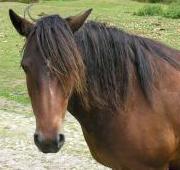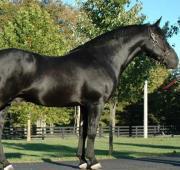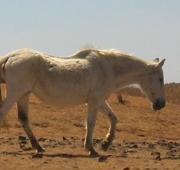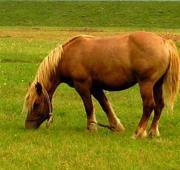 Horses evolved over 50 million years from small many toed animals to the big beautiful, single-toed horses of today. The modern horse has been domesticated around the world for many reasons including transportation and battle.
Horses evolved over 50 million years from small many toed animals to the big beautiful, single-toed horses of today. The modern horse has been domesticated around the world for many reasons including transportation and battle. Horses tend to live for about 30 years, and the oldest recorded horse at age 56 died in 2007. Horses graze on plant matter and vegetation, preferably tender green grass. The height of a horse is measured in hands, 1 hand being the same as 10cm (4 inches). The age of the horse is estimated by the pattern of tooth wear in his mouth.
Horses tend to live for about 30 years, and the oldest recorded horse at age 56 died in 2007. Horses graze on plant matter and vegetation, preferably tender green grass. The height of a horse is measured in hands, 1 hand being the same as 10cm (4 inches). The age of the horse is estimated by the pattern of tooth wear in his mouth.


There are thought to be more than 300 different breeds of horse found around the world today, each being bred for a purpose. Enormous draft horses such as Clydesdales pull heavy wagons, lighter saddle horses are for riding, and pony breeds are suitable for children and small adults. Miniature horses (30" and under) are primarily pets, though some have been used to guide blind people.
Horses have remarkable hearing and are almost able to have 360 degree hearing. The sense of smell of the horse is better than that of a human but the horse tends to rely more on vision than smell. Their field of monocular vision is almost 360 degrees with a narrower field of binocular vision in front and slightly to the sides. Horses have a blind spot directly in front of the nose and directly behind them. For this reason it is better to approach from the side. Whether they can see color is inconclusive. They do have much better night vision than humans.
Horses have an advanced sense of taste which allows the horse to sort through grasses and grains to find the things that the horse would most like to eat. Horses generally will not eat plants that are poisonous, but when the horse cannot find more adequate food, the horse will eat plants that contain toxins. A horse's gut is designed to have food flowing through it almost continually, and horses graze most of the day if allowed.

